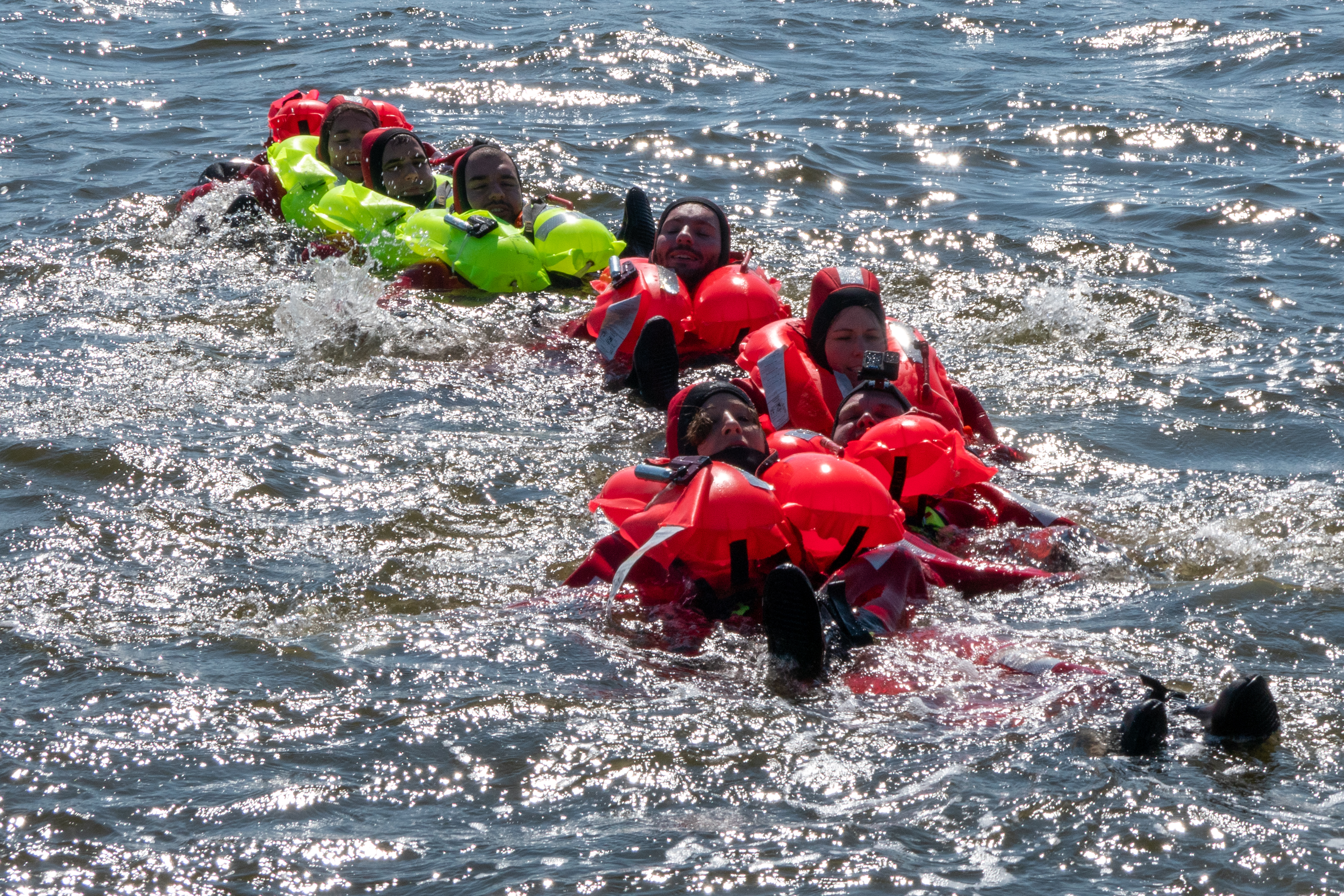IFLScience was recently at the Open Day of the European Space Research and Technology Centre, which is seen as the technical heart of the European Space Agency (ESA). There, we had the opportunity to interview ESA astronaut Rosemary Coogan, who is part of the recently graduated Hopper class of astronauts. The name refers to their hope to be the ones who get to hop in the low-gravity environment of the Moon as well as travel to the International Space Station (ISS).
With a PhD in astrophysics, studying galaxy evolution across the wavelengths, she became part of the astronaut class in ESA’s latest call back in 2022.
How has the training to become an astronaut been so far?
RC: It has been wonderful. It has been so busy, but so varied. It’s been two and a half years of training now. The first year was basic training. We learned all about the background of all of the science that goes on aboard the ISS. We did survival training, centrifuge training, and parabolic flights to experience microgravity. And since graduating from basic training, we spent the last year or so really working with the international partners, learning how to do spacewalks or EVAs, using the underwater facilities to simulate that microgravity, and learning all about the systems of the space station. So it’s been really jam-packed!
How was your first parabolic flight?
It was such an experience. The first time we kind of lifted off the ground and experienced microgravity, we were all holding hands, or I think we were arm in arm, and we just all lifted off the floor together. I couldn’t help but exclaim quite loudly. It was really magical.
What do you expect to be your first assignment?
At the moment, I’m training to go to the International Space Station, so I very much expect that to be my first mission assignment. There’s a huge amount of science we’ve done aboard the ISS, so I think that’s going to be a really fantastic place to start my career.
Of course, space is really opening up right now! We have the ISS, but we’re also looking, post-ISS, to having different commercial stations in low Earth orbit. Next year, we’ll have the first mission with a crew going back around the moon. So that is really starting.
My job as an astronaut is to be ready to support any of these missions and all of these missions either from space or on the ground. I’m really looking forward to, yeah, seeing where the path takes me.

The Hoppers during survival training.
Image credit: ESA
If you are one of the lucky astronauts who get to set foot on the Moon in the coming decades, what do you think is going to be the most exciting thing for you to study or do there?
An astronaut’s job on the Moon will be to identify the most interesting and relevant samples to collect, to study, and to really learn about our history, how the Solar System came to be, and how we came to be.
The idea of setting foot on the Moon or even getting that much closer to it, you know, it’s… [she laughs as she makes a “mind-blown” face]. The Moon is something we see almost every day, it has been in our sky for billions of years, and to experience that first hand… [more amazed faces and laughter].
Let’s jump back to your research. What excited you about astrophysics and the study of galaxies in particular?
I’ve always been fascinated by space. In my opinion, it’s just incredibly beautiful. You see these images of galaxies, particularly created by all different telescopes from all different wavelengths.
There are so many questions, and I was drawn to that element of it. Josef [Aschbacher, Director General of ESA], this morning on stage, was talking about how the more we learn, the more questions we have. And it’s absolutely the case. And I love that about science and particularly about astrophysics.
Is there a final message you’d like to share with our audience?
There is really no one way to go from wanting to be an astronaut to becoming an astronaut. In the selection, we are now seeing people from much more diverse backgrounds. And I think if you are interested in becoming an astronaut or if you’re interested in the space sector, there is absolutely a place for you.
I think it’s really important that people don’t think ‘oh, I haven’t got quite the right background or I don’t know quite how to get into it.’ I mean, that’s what open days like this are for, really. If you’re interested in space, absolutely, go for it. There is a place for you!
Source Link: IFLScience Meets: ESA Astronaut Rosemary Coogan On Astronaut Training And The Future Of Space Exploration